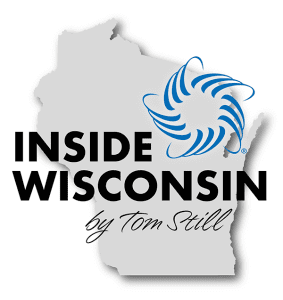By Tom Still
 MADISON, Wis. – Near the start of a Jan. 23 presentation by the director of Wisconsin’s signature cancer research center, I asked those attending how many had family members who had been touched by the disease over time.
MADISON, Wis. – Near the start of a Jan. 23 presentation by the director of Wisconsin’s signature cancer research center, I asked those attending how many had family members who had been touched by the disease over time.
Nearly every hand in the room went up.
That speaks to the insidious nature of a disease that in some ways remains a mystery to researchers such as those who work at the UW-Madison’s Carbone Cancer Center. It also illustrates the need for continued progress in finding better approaches to prevention, diagnosis and therapy surrounding one of mankind’s oldest scourges.
The Carbone Center, which is attached to the School of Medicine and Public Health, is one of the six original comprehensive cancer centers in the United States. Established in 1973 after the passage of the National Cancer Act of 1971, the center grew out from what was already a rich tradition of cancer research in Wisconsin that continues to this day.
Watertown native Mary Woodward Lasker, who received top presidential and congressional awards over time; Merrill native Dr. Harold Rusch, a pioneer researcher at UW-Madison; Nobel Prize winner Howard Temin; skin cancer expert Dr. Fred Mohs; and Dr. Paul Carbone, whose research led to advances in the treatment of Hodgkin’s disease and chemotherapy, are part of that tradition.
The latest in a short chain of directors at the Carbone Cancer Center is Dr. Howard Bailey, a nationally known oncologist who has led its work since 2013. Those efforts include research but extend to working with patients and community outreach, which he described during the Tech Council Innovation luncheon.
Bailey said advanced imaging, nuclear medicine, micro-fluidic biopsies and immunotherapies are among promising areas of cancer research in Wisconsin.
“What has happened in the last 10 to 15 years, with the discovery of more aspects of immunology, is we are literally curing people now that 10 years ago we did not,” he told the crowd. “So, there’s great growth in that, and how we can apply that to all things.”
Carbone Center researchers are also studying prostate cancer, multiple myeloma, breast cancer, leukemia, and head and neck cancers, among other forms of the disease. The center is typically engaged in 20 to 30 different studies at any given time, Bailey said.
How people develop cancers and the treatments they need can be very different, even with the same type of cancer. Personalized medicine is a way to respond to that reality, both in diagnostics and treatment. That’s one reason why “liquid biopsies” – separating tumor cells from a blood draw – can be so important. Reducing the need for more painful, invasive procedures is another.
The use of medical radioisotopes is expanding; so are better imaging technologies to pinpoint and treat cancers by killing the tumorous cells and sparing the healthy cells. There are Wisconsin companies engaged in both.
Preventing cancer remains a major goal. The Carbone Center works with other leading institutions such as the Mayo Clinic and Johns Hopkins University on prevention studies and techniques. Outreach throughout Wisconsin is a part of that effort, as well.
The Carbone Center provides cancer care to about 33,000 people per year through its prevention work, diagnosis, treatment and survivorship care. Bailey said it’s due to researchers and others aspiring to do more than work in the lab.
“When I first started, oftentimes researchers just wanted to do their thing in the lab — which is wonderful — and that was it,” Bailey said. “But nowadays, the new generation even of very basic researchers, they want to know how are you going to get my knowledge, my creativity to people … How are we changing people’s lives?”
He added the “vast majority” of the clinical trials at the center are conducted in partnership with pharmaceutical companies and startup businesses. “That’s the fastest way to make a difference,” Bailey said.
With so many types of cancers and so many people afflicted, that kind of dedication is more than welcome.
Still is president of the Wisconsin Technology Council. He can be reached at tstill@wisconsintechnologycouncil.com.



